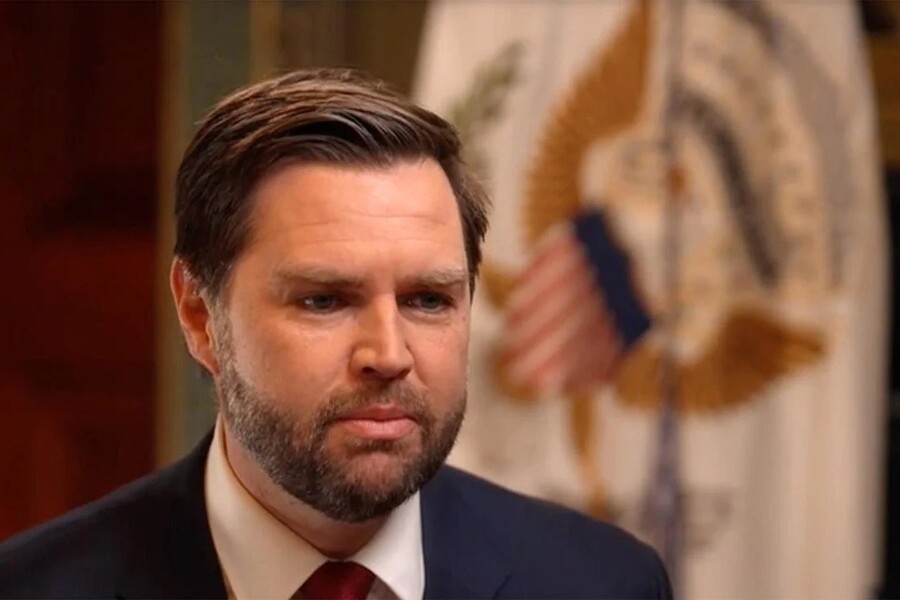Vice President JD Vance has emerged as a crucial force in the early days of President Donald Trump’s second term, leveraging his relationships and influence in the Senate to secure confirmation votes for Trump’s most controversial cabinet nominees. Despite serving only two years in the Senate, Vance’s connections within the chamber have proven instrumental in advancing the administration’s agenda.
Several Republican senators have pointed to Vance’s personal outreach and strategic discussions as pivotal in their decision-making on key nominations. Sen. Bill Cassidy of Louisiana, a swing vote on the Senate Finance Committee, credited Vance with helping him commit to voting for Robert F. Kennedy Jr. as Secretary of Health and Human Services (HHS). Cassidy had been uncertain about the nomination until he held intense conversations with the White House and Vance over the weekend.
“I want to thank VP JD specifically for his honest counsel,” Cassidy stated on X. “With commitments from the administration on issues like healthy foods and a pro-American agenda, I will vote yes.”
Similarly, Sen. Todd Young of Indiana noted that Vance addressed his concerns regarding former Rep. Tulsi Gabbard, Trump’s nominee for Director of National Intelligence. Young explained that he had identified gaps in Gabbard’s testimony and answers but worked with Vance to receive necessary assurances.
“We found some national security gaps,” Young told reporters. “Vice President Vance got me the answers I needed after thorough discussions.”
Sen. Susan Collins of Maine, another key moderate, acknowledged that she had spoken with Vance about various policy matters, including trade relationships vital to her state. “I’ve talked to him about the difference between our relationships with Canada versus those with Mexico and China,” Collins said.
Vance’s involvement extends beyond private conversations. He has publicly pressured Senate Republicans to support Trump’s nominees. After Gabbard and Kennedy testified before their respective committees, Vance took to X to defend their candidacies.
“Both Tulsi Gabbard and RFK Jr. represent parts of the new coalition in our party,” Vance wrote. “To say they’re unwelcome in the cabinet is to insult those new voters. Rejecting their confirmation is rejecting President Trump’s authority to choose his cabinet.”
During hearings, Vance introduced Howard Lutnick, Trump’s nominee for Commerce Secretary, and played a decisive role in securing support for Defense Secretary nominee Pete Hegseth. Vance even cast the tie-breaking vote to confirm Hegseth’s nomination.
Vance’s influence is bolstered by his close partnership with Senate Majority Whip John Barrasso, who manages vote counts and coordination for Senate Republicans. Barrasso and other GOP leaders view Vance as an integral part of their efforts to push Trump’s agenda through Congress.
“He’s been talking to senators constantly, working the phones, and making sure everyone’s concerns are heard,” said a senior Republican aide. “His role is critical in these early weeks.”
Unlike past vice presidents, who were often tasked with handling specific initiatives, Vance is expected to take on a wide-ranging role. Advisers close to him have described him as a “generalist” who will oversee various policy areas rather than focusing on one portfolio. His responsibilities include ensuring that no legislative or political obstacles slow down Trump’s plans.
“He’s not going to be boxed into one set of duties,” an aide explained. “His job is to be involved across the board and keep the administration’s momentum going.”
President Trump has expressed strong confidence in Vance’s ability to navigate Capitol Hill politics and secure critical votes. “We need people who can get things done,” Trump said during a press briefing. “JD is making sure that no one slows us down.”
Vance’s growing influence has made him the go-to person for both Senate Republicans and the White House. His effectiveness in bridging the executive and legislative branches is shaping his role as a key political operator in the administration.
Looking ahead, Vance’s influence will be tested as the administration moves to tackle major legislative battles. His ability to maintain party unity and secure support for Trump’s policies will play a significant role in determining the administration’s success. For now, however, he has proven that the vice presidency can be a position of real political power and influence.
“He’s already showing that he can deliver results,” said one Republican strategist. “He’s helping build momentum for the administration and ensuring that no one stands in the way of President Trump’s agenda.”

